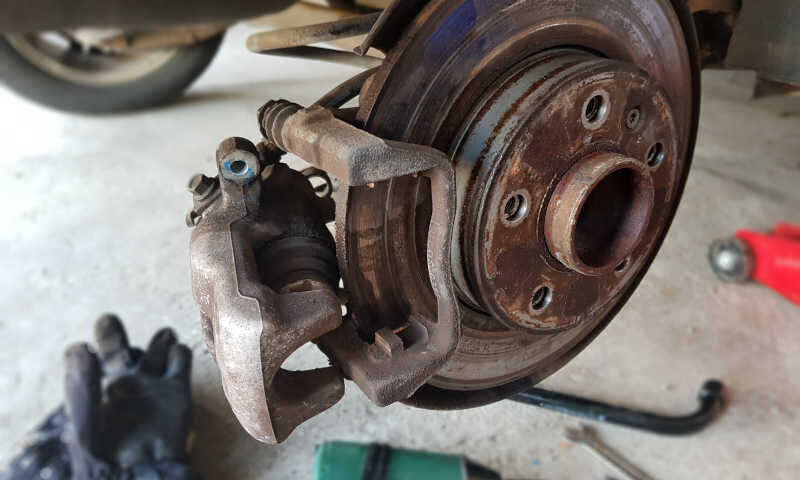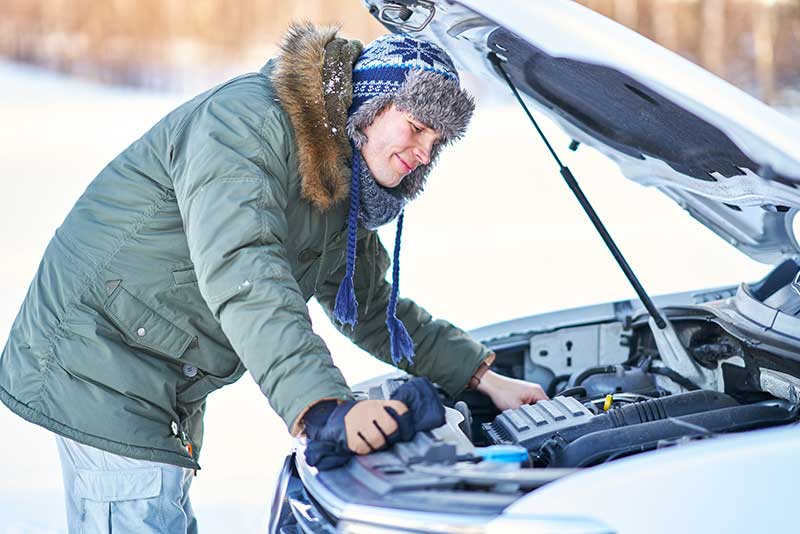3 Reasons Winter Can Cause Noisy Brakes

10 Critical Winter Tune-Up Checklist Items
January 6, 2023
8 Causes of Check Engine Lights on in Cars and What to Do About Them
March 3, 2023The Effects of the Winter Cold on Your Brakes
Nothing grabs your attention quite like the sound of scraping or screaming coming from the brakes of the vehicle you’re driving. This is the very last thing you need, your mind is racing, and it’s winter, and you’re counting on the braking system of your automobile to assist you in safely stopping on snow and ice. Your only concern should be the potential financial impact it will have on you.
Before you consign yourself to the prospect of an expensive brake repair, read on to learn how the winter could be the source of the noise coming from your brakes. It’s possible that any sporadic sounds coming from the brakes, especially during the winter, won’t have any long-term effects.
A Mixture of Snow and Frozen Water
While you are driving your vehicle, there is a risk of snow and water getting into the braking pads and rotors. If the temperature drops below 32 degrees Fahrenheit, there is a chance that your car will freeze the next time you start it, which will result in your brakes making a grinding and screaming sound. As the brakes on your vehicle heat up, the ice may melt off of the brake pads and rotors, thereby solving the problem.
Rust Buildup
An accumulation of rust on your brake rotors may cause your brakes to make a noise similar to squeaking or squealing. If the car is left outside overnight, the surface of the brake rotors will become contaminated with moisture from sources such as fog, snow, or dew. Due to the presence of this moisture, a rusty coating might develop on the rotor.
The rust that is on the surface can be removed by moving the vehicle and applying the brakes. The only thing that can be done to stop this from happening is to park the vehicle overnight in a dry location, such as a driveway or someplace else dry.
ABS Brakes
In the event that you came to an abrupt halt on snow or ice, the anti-lock braking system (ABS) installed in your vehicle would very certainly engage. When you push the brake pedal in certain cars, the anti-lock braking system (ABS) mechanism permits a scraping or buzzing sound. Do not be alarmed, even though you may not be accustomed to the operation of anti-lock brakes; these sounds are natural, and they serve as an indicator that the ABS brakes are operating as they should.
As soon as you hear the scraping or clicking sounds, you must remember to keep your foot on the brake. Be sure to keep a consistent amount of pressure on the brake pedal at all times. It is not necessary to pump the brakes if you maintain your foot firmly planted on the brake pedal and apply a consistent amount of pressure in order for ABS brakes to function properly.
Still Having Problems? Find a Professional from Road Runner Auto Care
If you are still hearing noises coming from the brakes, it is time to bring your dependable vehicle into Road Runner Auto Care so that they may take a look at it. Your vehicle’s braking system is one of the most important safety elements that it offers. Don’t risk driving with broken braking.


